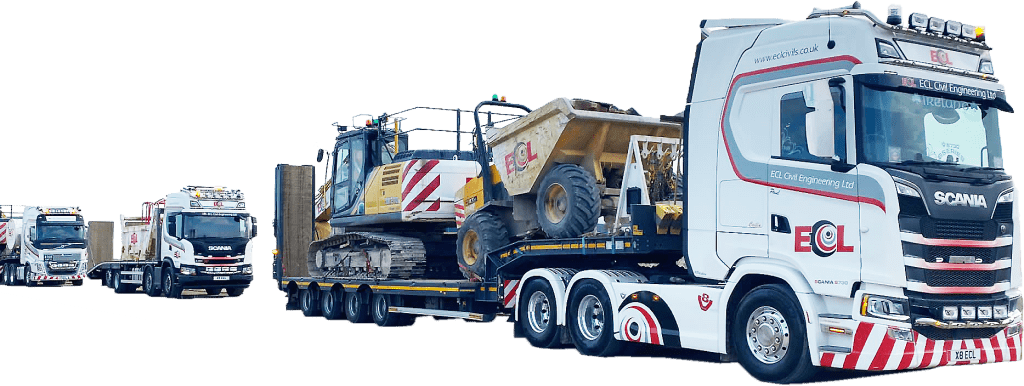HYBRID TECHNOLOGY
Over the past few years, we have reduced our plant’s carbon footprint, initially with ultra-low emissions excavators and more recently with hybrid machines, such as the hybrid Kobelco 210 Hybrid Excavators.
We currently have 200 modern Kobelco excavators on fleets with 40 or so examples of the new SK210-10E. This model features an ultra-low emissions diesel engine connected to an electric motor/generator, allowing the battery to be charged during low-load parts of the digging or loading cycle.
FUEL ACTIVE SYSTEM
Transitioning to an entire fleet of hybrid kit will be an incremental process due to the monumental size of our fleet. In the interim, we have added a system called Fuel Active into the existing plant fleet fuel tanks.
The Fuel Active System is a floating suction system that takes the diesel from the top of the tank instead of the bottom. This component prevents dirt and water from being sucked into the fuel system and means the engine doesn’t have to work as hard.
By fitting these to every machine, the fuel usage saving is approx. 1-2 litres an hour, not a great deal but for over 400+ machines the CO2 output of our machinery has been dramatically reduced.
HYDROTREATED VEGETABLE OIL
HVO (Hydrotreated Vegetable Oil) Renewable Diesel is a premium fossil-free diesel made just from raw materials, which doesn’t release any new carbon dioxide into the atmosphere. It is produced by the hydrotreatment of vegetable oils and/or animal fats, and the result is a premium quality fuel with a chemical structure almost identical to regular diesel. It can, therefore, fully replace fossil diesel.
The issue with this fuel is supply! We are currently undergoing trials and in discussions around costs and supply to hopefully make HVO fuel a viable long-term fuel strategy.
As well as fueling our plant, HVO would be ideal for our HGV fleet. Our HGVs are all under two years old, and have the latest Stage 5 compliant engines, already the cleanest on the market, which means they can accept HVO fuel without any conversion.
If we can get a workable solution, HVO fuel could enable us to quickly ramp up the already significant H2O savings our fleet is producing.
HYDROGEN
Due to the demand of our high-power heavy plant equipment, a complete electric solution isn’t practical. The excessive weight and cost of the battery, along with the long charging times and the need to have charging facilities in the remotest of infrastructure locations, just isn’t achievable right now.
Hydrogen motors use similar technology to existing propulsion systems. As a result, they are robust, cost-effective and can be integrated into all forms of heavy plant by simply replacing the existing diesel engine with hydrogen powertrains.
We are currently exploring this solution and the benefits of incorporating Hydrogen Powertrains into our fleet.
